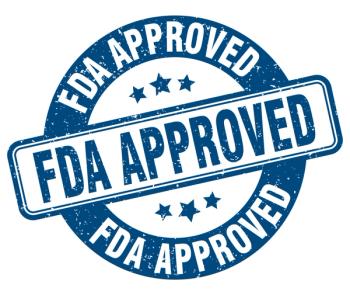
Be MedWise campaign urges patients to talk to R.Ph.s
BeMedwise OTC campaign launched to promote safe OTC use
SELF-CARE
Be MedWise campaign urges patients to talk to R.Ph.s
Surgeon General Richard H. Carmona, M.D., recently joined forces with the National Council on Patient Information & Education (NCPIE) and the Food & Drug Administration to kick off a Be MedWise Prescription for Taking OTC Medicines campaign. The centerpiece of the effort is a pharmacy-based education campaign that is intended to reach consumers when they are thinking about nonprescription medicines and making their purchasing decisions.
Unveiled at a press conference in Washington, D.C., last month, the campaign is designed to complement NCPIE's ongoing Be MedWise campaign about the safe use of OTC medicines (
The latest effort features Carmona's "prescription"a list of important questions for consumers to ask their pharmacist concerning the selection and appropriate use of OTC medicines. The list will be distributed through community pharmacies, clinics, and community and senior centers. Among the questions the public is urged to ask are the following:
What OTC medicines are available for the symptoms I want to treat?
How much of this OTC medicine should I take at a time?
How often should I take this OTC medicine?
How many days in a row should I use this medicine?
What other medicines (OTC and Rx), herbal products, or dietary supplements should I avoid while taking this OTC medicine?
N. Lee Rucker, senior VP, policy and public affairs, NCPIE, told Drug Topics, "Patients usually take prescription medicines with a little bit of caution, but sometimes they overlook that same caution when they are taking nonprescription medicines. This element of the campaign with the Surgeon General is telling people: Don't just grab that bottle off the shelf and run with it. Take a step back and ask your pharmacist, physician, or healthcare professional if this medicine is going to be safe to take, given the other medicines you might be taking."
The Be MedWise Prescription will be supported by a national advertising campaign that consists of TV and radio ads, a brochure printed in English and Spanish, and new information on the campaign's Web site at
The launching of the new campaign coincides with the release of new survey data about how and when Americans take OTC medicines. Conducted for NCPIE by Harris Interactive in June 2003, the national poll of 1,009 adults revealed the following:
More than half of those polled (51%) reported having taken an OTC medicine and a prescription drug simultaneously. This can be a problem because some prescription medicines contain the same active ingredient as commonly used OTC medicines.
Almost half of those surveyed (48%) said they have taken more than the recommended dose of a nonprescription medicine.
Among people who said they exceeded the recommended dose of an OTC medicine, 35% said they took the dose sooner than directed; 32% took more than the recommended amount at a single time; and 18% reported taking the medicine more often during the day than recommended on the label.
When it comes to label information, NCPIE's survey showed some encouraging trends about how and when consumers use OTC labels. Compared with findings reported in early 2002, this year's poll shows that while consumers tend to use OTC label information selectively, nearly three in five respondents (56%) are aware of the "Drug Facts" label (which became a federal regulation on May 16, 2002). Furthermore, 44% said they look for the active ingredient (up from 34% in 2002).
Rucker told Drug Topics, "What we've seen with our survey is that people are starting to consult the drug facts label on many products. The first item listed on the drug label is the active ingredient. People need to understand that that's a very important portion of the label because they are taking multiple OTC medicines and Rx medicines. These medicines may contain the same active ingredient and that can lead to inadvertent dangerous levels of overdosing."
The survey also revealed that many consumers don't seek the advice of a pharmacist. Only four in 10 (43%) now consult a pharmacist about nonprescription medicines. Magaly Rodriguez de Bittner, Pharm.D., associate professor, University of Maryland School of Pharmacy, who was on hand at the conference, was disappointed with this finding. However, she said, "The survey findings highlight an important issue in the use of OTC products: Many consumers think that since these products are OTC, they do not have the potential to cause adverse events or interfere with their Rx medications. So, they may think that they do not have to ask their pharmacists since they believe these agents are harmless. The findings of the study provide a great opportunity to bring information to consumers about the role of the pharmacists as their counselor and advisor in OTC product selection and use."
Sandra Levy
Sandra Levy. Be MedWise campaign urges patients to talk to R.Ph.s. Drug Topics Oct. 6, 2003;147:64.
Newsletter
Pharmacy practice is always changing. Stay ahead of the curve with the Drug Topics newsletter and get the latest drug information, industry trends, and patient care tips.























